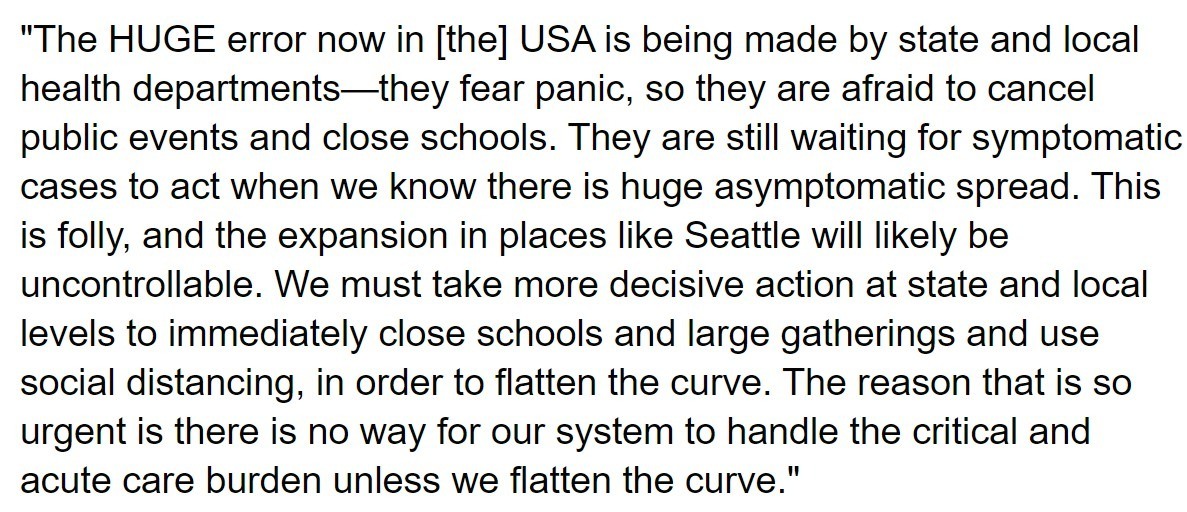Claire Lehmann in Quillette:
 Back in 2015, Bill Gates published an editorial in the New England Journal of Medicine (NEJM) warning that the world would likely see a pandemic in the next 20 years. He was writing in the aftermath of the Ebola outbreak in Guinea, Sierra Leone, and Liberia, and argued that while the world had an effective system for containing Ebola, it did not have adequate preparation for dealing with a disease with a substantially higher transmission rate. “[O]f all the things that could kill more than 10 million people around the world, the most likely is an epidemic stemming from either natural causes or bioterrorism.”
Back in 2015, Bill Gates published an editorial in the New England Journal of Medicine (NEJM) warning that the world would likely see a pandemic in the next 20 years. He was writing in the aftermath of the Ebola outbreak in Guinea, Sierra Leone, and Liberia, and argued that while the world had an effective system for containing Ebola, it did not have adequate preparation for dealing with a disease with a substantially higher transmission rate. “[O]f all the things that could kill more than 10 million people around the world, the most likely is an epidemic stemming from either natural causes or bioterrorism.”
Gates likened preparation for dealing with epidemics to preparation for another global threat—war:
The North Atlantic Treaty Organization (NATO) has a mobile unit that is ready to deploy quickly. Although the system is not perfect, NATO countries participate in joint exercises in which they work out logistics such as how fuel and food will be provided, what language they will speak, and what radio frequencies will be used. Few, if any, such measures are in place for response to an epidemic.
Two years later, at a global summit in Switzerland, Gates again warned leaders about their lack of readiness for a pandemic, emphasising that it was a global problem requiring countries to work together. “Epidemics don’t respect borders. And so, whether you’re looking at it through a humanitarian lens or a domestic lens, these are investments that should be made.”
In 2018, Gates made another warning. Noting that people can now travel across the globe in a matter of hours, he said that a pathogen similar to SARS could kill 30 million people in six months.
A new pathogen has now emerged.
More here.
